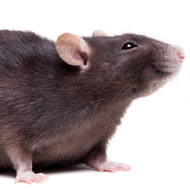Black rats may not be the only plague culprit

The Black Death arrived in Europe in 1347, marking the start of a pandemic that continued for four centuries in Europe.
Black rats may have been wrongly blamed for recurring outbreaks of bubonic plague across Europe, according to the results of a new study published in the Proceedings of the National Academy of Sciences.
Originating in Asia, the Black Death arrived in Europe in 1347 via trade routes of the silk road system. It marked the start of the second plague pandemic, which continued for four centuries in Europe, killing millions of people.
It was generally thought to be the result of a single introduction of plague (Yersinia pestis), which then established itself in European rodents.
Scientists from the University of Oslo, however, may have discovered an alternative scenario. They studied the impact of climate on plague outbreaks by comparing tree-ring records and 7,711 historical plague outbreaks.
According to their findings, they discovered a link between climate-related plague outbreaks in Asian rodents and new waves of plague entering Europe through the trade network with Asia.
Researchers say this strongly suggests the bacterium was continually reimported into Europe. This offers an alternative explanation as to how the plague managed to persist in Europe until the 19th century.
Further research being carried out at the university hopes to discover whether this theory is correct, by studying the DNA of Y. pestis in victims of the second plague pandemic.
To read the full study visit: http://www.pnas.org/content/early/2015/02/20/1412887112



 The latest
The latest